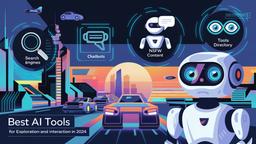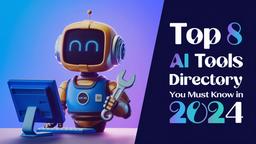AI Model Integration Platform Features
An AI Model Integration Platform is a comprehensive solution that enables seamless incorporation of AI models into existing systems and applications, providing tools for model management, deployment, and monitoring.
View MoreKey Features of AI Model Integration Platform
AI Model Integration Platforms provide a unified environment for developing, deploying, and managing AI models across an organization. These platforms offer features like automated machine learning, model lifecycle management, explainable AI tools, and seamless integration with existing cloud infrastructure and data pipelines. They enable both technical and non-technical users to leverage AI capabilities through user-friendly interfaces, pre-built models, and customization options.
Automated Machine Learning: Simplifies the process of building and training custom ML models with minimal coding required, often including AutoML capabilities.
Model Lifecycle Management: Provides tools for versioning, monitoring, retraining and deploying models in production environments.
Explainable AI: Offers features to interpret model decisions and behaviors, increasing transparency and trust in AI systems.
Pre-built Models and APIs: Includes a catalog of ready-to-use AI models and APIs for common use cases like computer vision, natural language processing, etc.
Integration Capabilities: Allows seamless connection with existing data sources, cloud services, and business applications.
Use Cases of AI Model Integration Platform
Predictive Maintenance: Manufacturing companies can integrate AI models to predict equipment failures and optimize maintenance schedules.
Customer Segmentation: Retail businesses can use AI models to analyze customer data and create targeted marketing campaigns.
Fraud Detection: Financial institutions can implement AI models to identify suspicious transactions and prevent fraud in real-time.
Medical Imaging Analysis: Healthcare providers can utilize AI models for faster and more accurate diagnosis from medical images.
Supply Chain Optimization: Logistics companies can leverage AI models to forecast demand and optimize inventory management.
Pros
Democratizes AI development across organizations
Accelerates time-to-market for AI-powered solutions
Provides a centralized platform for managing AI assets and workflows
Cons
May have a steep learning curve for non-technical users
Can be expensive for small businesses or startups
Potential vendor lock-in with proprietary platforms
Popular Articles

Best AI Tools for Exploration and Interaction in 2024: Search Engines, Chatbots, NSFW Content, and Comprehensive Directories
Dec 11, 2024

12 Days of OpenAI Content Update 2024
Dec 11, 2024

Top 8 AI Tools Directory in December 2024
Dec 11, 2024

Elon Musk's X Introduces Grok Aurora: A New AI Image Generator
Dec 10, 2024
View More







